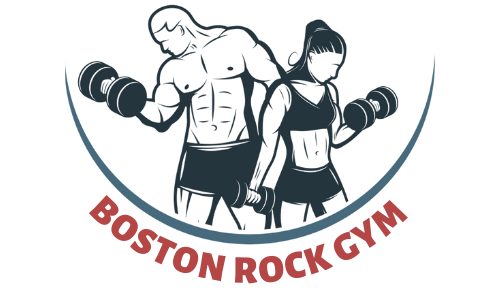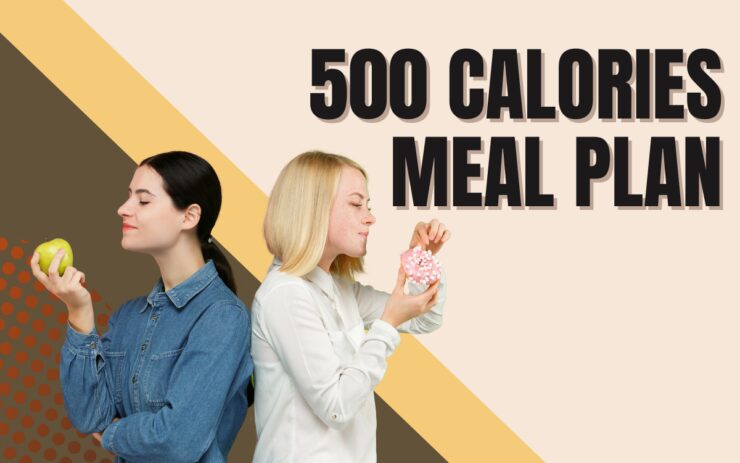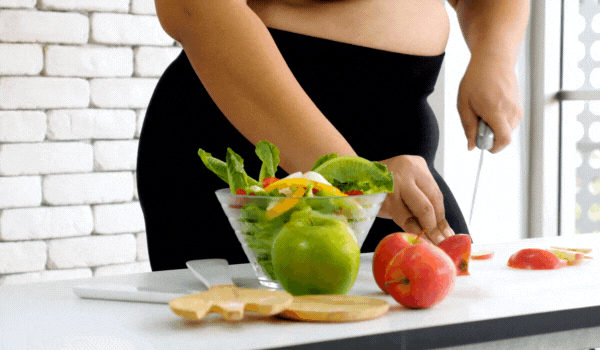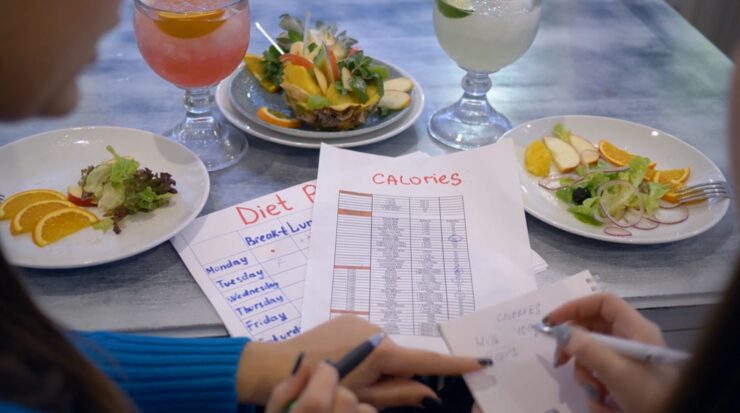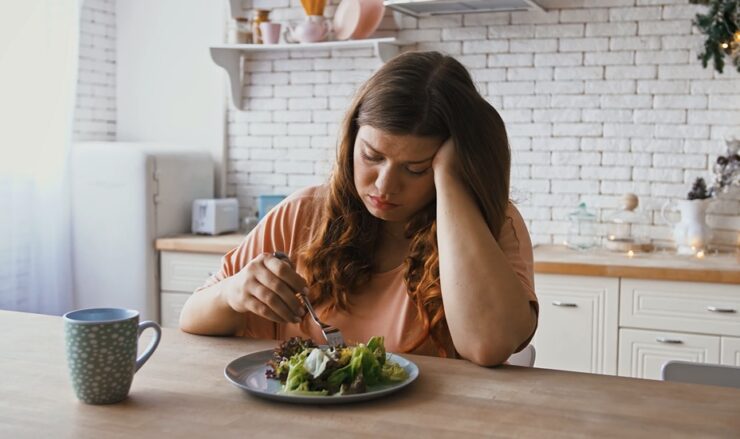If you are looking to lose some weight, you are undoubtedly aware of the calories you intake throughout the day. However, reducing your calorie consumption does not have to be a drag, and you can get full with nutrient-rich foods that are low in calories. Today, we will discuss the best meal plan for eating 500 calories a day for a month.
The 500-calorie diet plan is typically recommended for people with extreme obesity or health risks. However, this plan can also be beneficial for people that look to change their lifestyle and improve their health. In this article, we will discuss this diet plan and go in-depth about its benefits and drawbacks. There is a lot to cover, so without any delay, let us get started.
Contents
What Is a 500-Calorie Diet?
A 500-calorie diet is an extreme form of weight-reduction plan. It replaces regular food with liquid supplements, shakes, and bars for a specific period, in this case, a whole month. This restricted calorie consumption allows you to use already stored energy sources, for example, fat. In turn, you will lose weight.
One thing that is important to remember when thinking about this diet plan is that every individual is different and needs to consume different amounts of calories to function properly and achieve the desired results.
Generally speaking, when you consume 500 calories per day, you can shed between 8 and 20 pounds by the end of the diet plan. However, this depends on the individual’s metabolism, as well as its level of activity.
Week Meal Plan and Shopping List
This diet plan is something that can lead to a series of complications which is why you should visit a doctor and nutritionist before starting it. Going for a 500-calorie diet for a whole month without the assistance of a doctor is not advised, and if not managed properly, it can do more damage than good.
In the section below, we have listed a weekly list of groceries and meals you could go for when on a 500-calorie diet.
| Day 1 | 475 Total Calories | ~Cal. |
| Breakfast | Orange & Coffee/Tea | 70 |
| Snack | Melba Toast (5 grams) | 20 |
| Lunch | Chicken (3.5 oz) | 100 |
| Lunch Side | Spinach (6 oz) | 40 |
| Lunch Side | Sugar-free Jello (½ cup) | 5 |
| Dinner | Tilapia (3.5 oz) | 100 |
| Dinner Sides | Broccoli (6 oz) | 70 |
| Snack | Apple (medium) | 70 |
| Day 2 | 480 Total Calories | ~Cal. |
| Breakfast | Apple, Coffe/Tea | 70 |
| Snack | Sugar-free Jello (½ cup) | 5 |
| Lunch | Hamburger (3 oz, 93% lean, no bun) | 150 |
| Lunch Side | Cauliflower (6 oz) | 40 |
| Lunch Side | Strawberries (6 oz) | 45 |
| Dinner | Shrimp (3.5 oz) | 110 |
| Dinner Side | Asparagus (7 oz) | 40 |
| Snack | Melba Toast (5 grams) | 20 |
| Day 3 and 5 | 485 Total Calories | ~Cal. |
| Breakfast | Orange, Coffe/Tea | 70 |
| Snack | Melba Toast (10 grams) | 40 |
| Lunch | Chicken (3 oz) | 100 |
| Lunch Side | Broccoli (6 oz) | 60 |
| Lunch Side | Lettuce Salad (no calorie dressing) | 30 |
| Dinner | Tilapia (3.5 oz) | 100 |
| Dinner Side | Cauliflower (6 oz) | 40 |
| Snack | Strawberries (6 oz) | 45 |
| Day 4 | 485 Total Calories | ~Cal. |
| Breakfast | Strawberries, Coffe/Tea | 45 |
| Snack | Melba Toast (5 grams) | 20 |
| Lunch | Sirloin Steak (3 oz) | 160 |
| Lunch Side | Spinach Salad (no calorie dressing) | 40 |
| Lunch Side | Melba Toast (5 grams) | 20 |
| Dinner | Chicken (3.5 oz) | 100 |
| Dinner Side | Celery (7 oz) | 30 |
| Snack | Apple (medium) | 70 |
| Day 6 | 500 Total Calories | ~Cal. |
| Breakfast | Strawberries (6 oz), Cofee/Tea | 45 |
| Snack | Orange | 70 |
| Lunch | Sirloin Steak (3 oz) | 160 |
| Lunch Side | Cauliflower (6 oz) | 40 |
| Lunch Side | Tomatoes (7 oz) | 40 |
| Dinner | Tilapia (3.5 oz) | 100 |
| Dinner Side | Asparagus (7 oz) | 40 |
| Snack | Sugar-free Jello (½ cup) | 5 |
| Day 7 | 490 Total Calories | ~Cal. |
| Breakfast | Apple, Coffe/Tea | 70 |
| Snack | Green Tea | 5 |
| Lunch | Hamburger (30 oz, 93% lean, no bun | 150 |
| Lunch Side | Celery (7 oz) | 30 |
| Lunch Side | Strawberries (6 oz) | 45 |
| Dinner | Shrimp (3.5 oz) | 110 |
| Dinner Side | Broccoli (6 oz) | 60 |
| Snack | Melba Toast (5 grams) | 20 |
As you can see, this diet plan is pretty restrictive and requires a lot of discipline to complete it. Again, we cannot stress enough that you should consult your doctor before starting this diet.
Side Effects of Eating 500 calories a Day
The first thing you need to know is that eating 500 calories is not a healthy diet. Consuming less than 1200 calories per day for a month can put your nutritional status in danger. Following this diet for a month can lead to a deficiency of several essential vitamins and minerals, such as vitamin D, vitamin C, and zinc levels.
The lack of fiber in this diet can also result in constipation, and it can weaken your immune system, which makes you susceptible to various illnesses. Malnutrition, in general, can lead to different health issues, even if you do lose weight.
How to Eat 500 Calories per Day and Feel Full?
When you hear that someone ate 500 calories daily and did not feel hungry, it is likely that they have a slow metabolic rate or are eating foods that are filling and have low calories. In the section below, you will find some tips to feel fuller when on this diet.
- Consume calorie-free drinks such as black coffee.
- Try eating soup for dinner and add a lot of vegetables.
- Eat fruits and vegetables that are rich in fiber, which will keep you fuller for longer periods.
- Eat cauliflower and broccoli since both veggies are very filling and low in calories (100 grams of broccoli is only 24 calories).
- Eat slowly and chew properly. Eating this way will keep you full for a longer period of time.
- Drink a glass of water before each meal.
Who should avoid low-calorie diets?
Generally speaking, doctors do not allow people with medical conditions to go on low-calorie diets. People that have the following conditions should not go on this diet before consulting with a medical healthcare provider:
- Heart Disease
- Kidney Disease
- Diabetes
- Gout
- Gallstones
Final Words
Although a 500-calorie diet will help you lose weight, it is not the healthiest option to do such a thing. The best course of action is to consult your doctor and nutritionist, who are familiar with our medical condition and can give you a piece of proper dietary advice.
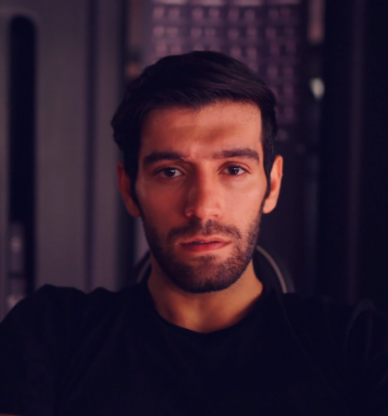
Steve is a certified trainer with more than 10 years of training experience and he holds a Master’s in Sports Science. Prior to Boston Rock Gym, Steve worked for two years as a personal trainer.
